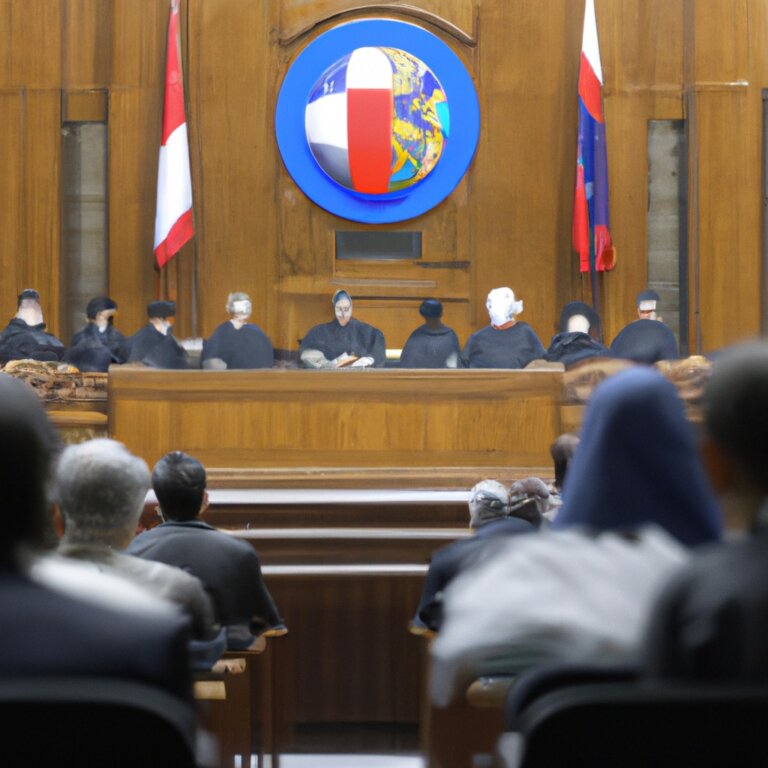When parties involved in international business transactions have a dispute that they cannot resolve through negotiation, they turn to arbitration as a means of alternative dispute resolution. One of the key advantages of arbitration over litigation is the ability to select the arbitral tribunal that will hear the dispute. In this post, we will compare and contrast some of the major arbitration tribunals, examining their rules, expertise, and reputation. We’ll also provide some guidance on how to choose the right tribunal for your dispute.
International Centre for Settlement of Investment Disputes (ICSID)
The ICSID is part of the World Bank Group and primarily handles investment disputes between states and foreign investors. One of the main advantages of ICSID arbitration is that the resulting award is enforced under the Convention on the Settlement of Investment Disputes between States and Nationals of Other States (ICSID Convention). The ICSID offers comprehensive rules and procedures for arbitration, conciliation, and fact-finding. Parties may choose their own arbitrators, but the tribunal must be composed of an odd number of arbitrators. ICSID is one of the most famous tribunal involving dispute in foreign investment. International Centre for Settlement of Investment Disputes (worldbank.org)
International Chamber of Commerce (ICC) Court of Arbitration
The ICC is one of the oldest and most respected Tribunal in the world. It is known for handling commercial disputes, particularly those involving large sums of money or complex issues. The ICC’s rules allow for a high degree of party autonomy in the selection of arbitrators and the conduct of the proceedings. One of the advantages of the ICC is its global reach, with offices and representatives in many countries around the world. ICC | International Chamber of Commerce (iccwbo.org)
London Court of International Arbitration (LCIA)
The LCIA provides services for arbitration, mediation, and other forms of dispute resolution. It is known for its high standards and reputation for quality. The LCIA’s rules provide for a flexible and confidential process, with parties free to select arbitrators from a list of experienced practitioners. One of the advantages of the LCIA is its speedy dispute-resolution mechanism. The tribunal sometimes must make its award within six months of the final hearing, unless the parties agree on a longer time frame. This is a key difference among other tribunals that the LCIA has. The London Court of International Arbitration (LCIA)
American Arbitration Association (AAA) and International Centre for Dispute Resolution (ICDR)
The AAA is a major arbitration body in the United States, and its international branch, the ICDR, handles disputes between global parties. The AAA/ICDR has a broad range of rules for commercial, construction, labor, and employment disputes. One of the advantages of the AAA/ICDR is its extensive panel of arbitrators, made up of over 8,000 experienced professionals. The parties may select arbitrators from this panel, or they may choose their own. About the AAA-ICDR | ADR.org
Singapore International Arbitration Centre (SIAC)
The SIAC is a leading international arbitration institution in Asia. Its arbitration rules provide for a flexible and efficient process, and it is known for the quality of its arbitrators. A key advantage of the SIAC is its multicultural panel of arbitrators, reflecting the diversity of the business community in the Asia-Pacific region. Home – Singapore International Arbitration Centre (siac.org.sg)
Permanent Court of Arbitration (PCA)
The Permanent Court of Arbitration is located in the Hague in the Netherlands. It is an intergovernmental organization established by the 1899 Hague Conference on International Peace and it serves to facilitate arbitration and other forms of dispute resolution between states. This Tribunal provides services for resolving disputes involving various combinations of states, state entities, international organizations, and private parties. Its primary functions are to provide facilities for arbitral proceedings, appoint arbitrators, administer proceedings, and issue awards. The PCA also offers advisory opinions on questions of international law, as well as conciliation services for settling disputes that are not required to be submitted to arbitration. It is a truly unique institution in the world of international dispute resolution.
The Permanent Court of Arbitration can facilitate the resolution of disputes involving virtually any type of matter, including trade and economic issues, boundary delimitation, environmental matters, human rights issues, and other international law disputes. The PCA employs a variety of dispute-resolution techniques to help parties resolve their differences in an efficient and cost-effective manner. In addition to traditional arbitration proceedings, the PCA also offers mediation services as well as hybrid processes such as “shuttle diplomacy,” which combines elements of both arbitration and mediation.
Comparing Major Arbitration Tribunals: AAA and ICDR
Choosing the right arbitration tribunal is a critical decision for parties engaged in international business transactions. Ultimately, the choice will depend on the specifics of the dispute, including subject matter, location, and the parties involved. By carefully examining the rules and reputation of each tribunal, party autonomy in arbitration, and the qualifications of arbitrators, parties can make an informed decision that will result in a fair and efficient resolution of their dispute. Whether you choose the ICSID, ICC, LCIA, AAA/ICDR, SIAC, or another tribunal altogether, the key is to select a tribunal that can provide the expertise and quality of dispute resolution that you need. To learn more about which tribunals your case should be in Contact Our Office – Transnational Matters


